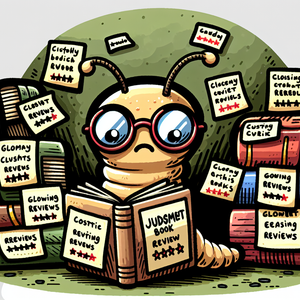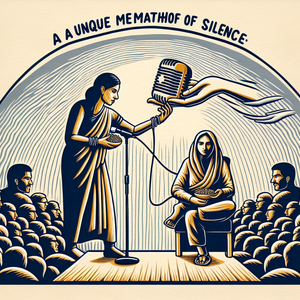Beyond the Buzzwords: Crafting Job Applications That Stand Out in an AI-Driven World

AI has become an indispensable tool in modern recruitment, streamlining processes and enabling hiring managers to assess a large volume of applications efficiently. Applicant Tracking Systems (ATS), powered by AI, are now commonplace, filtering resumes based on specific keywords and criteria before human eyes ever see them. While these systems enhance efficiency, they also pose challenges for applicants. The need to cater to AI algorithms while simultaneously showcasing unique qualifications is a delicate balance that many job seekers struggle to achieve.
Avoiding the Pitfalls of Generic Language
One of the most common pitfalls in contemporary job applications is the overreliance on generic, AI-generated language. While incorporating keywords is crucial to pass through ATS filters, falling into the trap of using buzzwords without substance can make an application blend into the background. To stand out, clarity and specificity are essential. Instead of relying on vague descriptors like "team player" or "results-driven," applicants should offer concrete examples that illustrate these traits. For example, detailing how you led a team project that increased sales by 20% provides a tangible narrative that both AI and human recruiters can appreciate.
The Power of Personalized Storytelling
Storytelling is a transformative tool that can elevate a mundane resume into an engaging narrative. A well-crafted story not only highlights accomplishments but also provides insight into an applicant's personality and values. By weaving personal experiences into the application, candidates can create a compelling narrative that distinguishes them from others. For instance, instead of merely listing job duties, a candidate could describe how a particular challenge at work ignited their passion for problem-solving, thereby adding depth to their professional journey.
Integrating AI and Human Touch
While AI can assist in tailoring applications to fit job descriptions, maintaining a personal touch is crucial. Customizing each application to reflect the specific company culture and values shows initiative and genuine interest. Researching a potential employer and incorporating this knowledge into your application demonstrates a proactive approach. Additionally, reaching out personally, whether through a cover letter or networking, adds a human element that AI cannot replicate.
In the quest to secure a job in an AI-driven world, authenticity is key. While AI tools can enhance the application process, they should not overshadow the unique qualities that make an applicant a perfect fit for a role. By avoiding generic language, embracing personalized storytelling, and balancing AI with a human touch, job seekers can craft applications that not only pass the algorithmic filters but also leave a lasting impression on hiring managers. Ultimately, the goal is to present oneself as not just another applicant, but as a valuable addition to a prospective employer's team.
AI Recruitment Specialist
IBM, Google, LinkedIn
Responsibilities
Design and implement AI-driven recruitment strategies to streamline candidate sourcing and selection processes.
Collaborate with HR teams to integrate AI tools with current recruitment practices, ensuring compliance with company values and diversity goals.
Analyze AI-generated data to enhance recruitment efficiency and candidate experience.
Requirements
Requires expertise in AI algorithms, data analytics, and human resources.
Data Privacy Officer
Facebook, Amazon, Microsoft
Responsibilities
Develop and enforce data protection policies to ensure compliance with regulations like GDPR in the recruitment process.
Conduct regular audits and assessments to identify potential data breaches and ensure secure handling of applicant data.
Educate employees on best practices for data privacy and security, particularly in AI-driven systems.
Requirements
Requires knowledge of data protection laws and experience in IT security.
Employer Branding Strategist
Deloitte, Salesforce, Adobe
Responsibilities
Craft compelling employer brand narratives that resonate with potential candidates and reflect company culture and values.
Utilize data analytics to assess the impact of branding efforts and refine strategies for better engagement.
Partner with marketing and HR teams to align branding initiatives with recruitment objectives.
Requirements
Requires skills in digital marketing, storytelling, and strategic communication.
HR Analytics Consultant
Accenture, PwC, McKinsey & Company
Responsibilities
Leverage data analytics to provide insights into recruitment trends, employee satisfaction, and retention strategies.
Develop predictive models to anticipate hiring needs and optimize talent acquisition processes.
Guide HR teams in interpreting data to make informed decisions that enhance organizational performance.
Requirements
Requires proficiency in statistical software and HR metrics.
Digital Transformation Consultant in HR
Capgemini, Cognizant, Oracle
Responsibilities
Lead the implementation of digital tools and platforms to modernize HR operations and improve recruitment efficiency.
Identify opportunities for integrating AI technologies to enhance candidate sourcing and selection processes.
Train HR staff on new digital systems and ensure seamless adoption across the organization.
Requirements
Requires experience in change management and digital strategy implementation.


